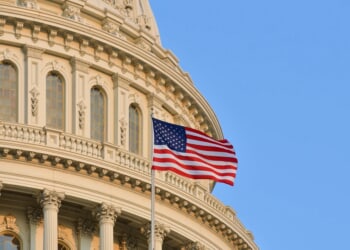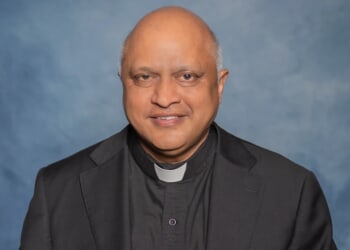John Wall is a retired engineer and former Conservative county councillor in Hampshire.
Russian foreign policy has been consistent since the Tsars, to be a “Great Power” but after the dissolution of the USSR in 1991 they were a regional power, albeit heavily armed.
To their former satellites they were the bully next door, and less than three years later they invaded Chechnya (1994-96), and again in 1999-2000/9. In 2008 Georgia was invaded, in 2014 it was the Crimea and in 2015 they intervened in Syria to support Assad.
Some (no names, no packdrill but I’m looking at you, Mr Farage!) have claimed that NATO’s eastward expansion “threatened” Russia but the opposite is true. In 1991 Poland, Hungary, and Czechoslovakia initially sought membership but no new members were actually admitted until 1999 and the First Chechen War was an important factor.
Many struggle to understand Trump’s actions, but the withdrawal from Afghanistan may provide a template.
The chaotic 2021 exit resulted in many unforgettable and harrowing images. It’s been suggested that this emboldened Putin to go beyond his annexation of the Crimea and the rebellion he’d been fomenting in eastern Ukraine, perhaps a future historian will find confirmation in the Kremlin archives.
Although this occurred during Biden’s presidency, the terms of the withdrawal, the Doha Agreement, were negotiated in Trump’s first term.
The partisan nature of domestic American politics meant that Democrats blamed Trump while Republicans blamed Biden so let’s forego this for the Defence Committee report from February 2023.
The Summary says:
“The withdrawal of US forces in line with the Doha Agreement made the subsequent collapse of the Afghan Government inevitable.”
The section on the Doha Agreement contains much damning testimony from very knowledgeable people.
According to Ben Wallace who’d declared it a “rotten deal” at the time:
“the UK played no part in the Doha Agreement and [he] criticised the agreement for withdrawing coalition ISR (intelligence, surveillance and reconnaissance) and air support and, in doing so, removing from the battlefield ‘the one thing that the Taliban feared’”
“an intelligence assessment at the beginning of August 2021 concluded that the withdrawal of ISR/air cover capability increased the ability of the Taliban to take ground or run an offensive”
“the terms of the deal could probably not have been more helpful to the Taliban in achieving its victory or its aim”
and:
“If you remove from the battlefield the one thing that holds them back and at the same time publicly do a deal with them in Qatar but not necessarily with the actual Government in post, you send a message to the world that you do not have any faith in the Government in post.”
Brigadier Ben Barry, Senior Fellow for Land Warfare at the International Institute for Strategic Studies contended:
“From a position of weakness, the US negotiated a ceasefire deal with the Taliban, with no guarantees that the Taliban would stick to their side … nor that the elected Kabul Government’s interests would be protected”.
According to Dr Jack Watling, Research Fellow for Land Warfare at the Royal United Services Institute, the Agreement was:
“a roadmap to deliver what the United States wanted at the time, [he] did not think that the UK had many options in terms of influencing the US trajectory, that there was no expectation that the Doha Agreement would benefit Afghanistan and that the Agreement was about America getting out.”
Looking at recent events Afghanistan could easily be replaced with Ukraine, suggesting that the underlying philosophy is the same, Trump just wants to stop spending in Europe – like he wanted to stop spending in Afghanistan, and he doesn’t care who he throws under the bus. Although Starmer got good publicity for his Washington trip he achieved nothing, no security guarantees for Ukraine and few believe a minerals deal on its own will deter Putin.
His “America First” ideology can help explain this. Firstly, the US has both a large debt and deficit which are unsustainable in the medium to long term, requiring cuts to things like defence spending. American/Western military interventions have a far from successful record suggesting that domestic support could be difficult, and then there’s the growing power of China.
Much of Trump requires large quantities of salt but his repeated claim that the war wouldn’t have started had he been President looks hollow. If Afghanistan encouraged Putin the root cause looks to lie with Trump, he may have been fortunate to lose in 2020 as the ticking time bomb he left blew up in Biden’s face.
Fundamentally Putin is working to a different model. The western European empires were unsustainable after WW2, just as Russia had acquired one in central and eastern Europe, and, although sometimes reluctantly, were dissolved. Few would now seek to recreate them, but the Kremlin hasn’t got the memo.
Although the recent announcement that the Taiwan Semiconductor Manufacturing Corporation are investing $100bn in the US will help reduce dependency this will take some years to bear fruit.
Trump could be the root cause of Taliban control of Afghanistan, a continued expansionist Russia and a Chinese conquest of Taiwan.
Policy makers in London, Paris, Berlin, etc should look back at the withdrawal from Afghanistan, remember that those who ignore the lessons of history are doomed to repeat them and focus on breaking the cycle.






![Trump's Admin Guts Another ‘Rogue Government Agency with Zero Accountability’ [WATCH]](https://www.right2024.com/wp-content/uploads/2025/03/Trumps-Admin-Guts-Another-‘Rogue-Government-Agency-with-Zero-Accountability-350x250.jpg)
![‘We All Owe Him (Elon) a Huge Debt of Gratitude’ [WATCH]](https://www.right2024.com/wp-content/uploads/2025/03/‘We-All-Owe-Him-Elon-a-Huge-Debt-of-Gratitude-350x250.jpg)









